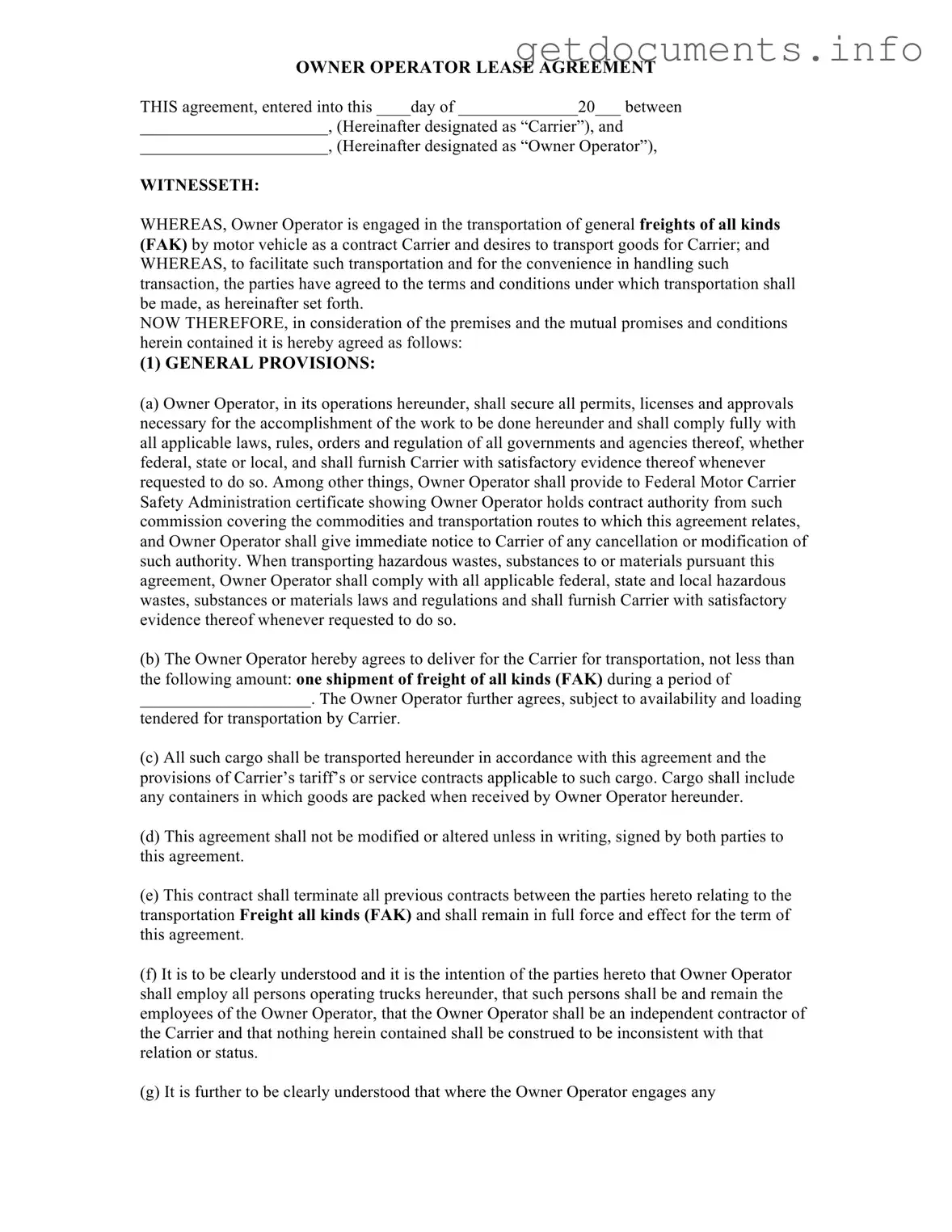Official Owner Operator Lease Agreement Form
The Owner Operator Lease Agreement is a legal document that outlines the terms and conditions between a carrier and an owner operator engaged in transporting goods. This agreement serves to clarify responsibilities, compensation, and legal obligations, ensuring both parties understand their roles in the transportation process. To get started, fill out the form by clicking the button below.
Access Owner Operator Lease Agreement Editor

Official Owner Operator Lease Agreement Form
Access Owner Operator Lease Agreement Editor
Got places to be? Complete the form fast
Fill out Owner Operator Lease Agreement online and avoid printing or scanning.
Access Owner Operator Lease Agreement Editor
or
⇩ PDF File
